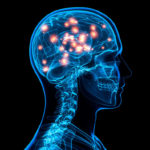A vast multi-centre study initiated by a team of researchers at McGill University has provided important predictors of dementia and parkinsonism that may lead to better candidate selection for clinical trials and subsequent therapy treatment.
In the study, researchers examined 1,280 patients with idiopathic rapid-eye-movement (REM) sleep behaviour disorder, often seen as an early indicator of Parkinson’s disease, dementia with Lewy bodies, and multiple system atrophy.
The sleep disorder, classified as a parasomnia, involves the exhibition of abnormal and excessive behavior during REM sleep.
Labeled as the largest ever initiated on patients with the REM sleep behaviour disorder, researchers aimed at testing drug treatments that could help inhibit the development of Parkinson’s. To achieve this, they needed to probe at-risk groups before the progression of the disease.
“The period between development of REM sleep disorder and symptoms of PD is particularly long, making those with the disorder good candidates for clinical trials to test new PD therapies,” a McGill news release reads.
“To select patients for clinical trials, however, it is important to know as precisely as possible what chances each patient has of developing PD, as there is significant variability among those with REM sleep disorder.”
In the study, tests measuring motor, cognitive, autonomic and special sensory abilities over a span of a few years were conducted on patients. Based on the findings, 73.5 percent of patients went on to develop Parkinson’s following a 12 year-long investigation.
Patients with motor difficulties were three times more likely to develop Parkinson’s or similar neurodegenerative diseases, the findings also conclude. Mild cognitive and olfactory impairments were among the significant indicators for developing Parkinson’s.
“While previous studies of REM sleep disorder and PD came from single centres, this study was done across multiple centres in North America, Europe and Asia, making the findings more robust. Overall, the findings will improve the selection process for clinical trials and help doctors prioritize patients for therapies that prevent the disease,” the findings proclaim.
“As new disease-modifying treatments are being developed for PD and related diseases, these patients are ideal candidates for neuroprotective trials.”
The study was published in the journal Brain.
